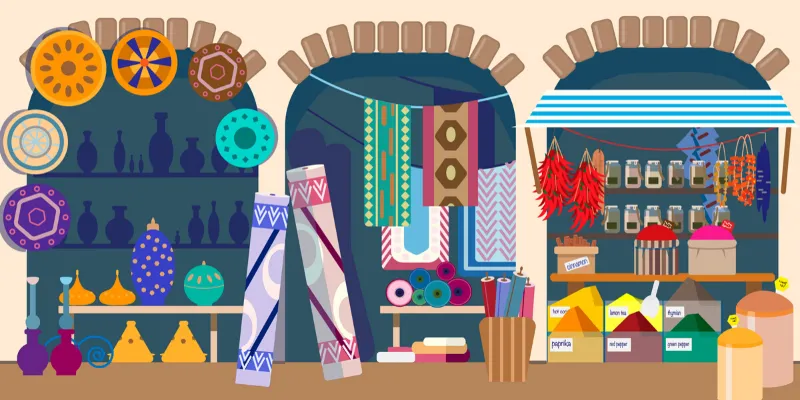These 8 government schemes are making the Indian startup ecosystem robust
YourStory curated a list of initiatives by the government to fill the gap for startups and entrepreneurs' journeys.
"These days we hear all around us, startup, startup, startup. It is true that this is the era of startups and it is also true that in the field of startups, in a way, India is leading the world," says PM Modi.
Over the last few years, India has created a robust ecosystem for startups and entrepreneurs. The country is now home to the third-largest startup ecosystem in the world, according to the Economic Survey 2021-22 report released earlier this year.
Over 60,000 startups are operating in India, and the country now boasts over 100 unicorns. However, not all of them have the right resources to thrive in the ecosystem and create a strong presence.
The government in India actively supports startups and entrepreneurs by launching various programmes and initiatives to train as well as provide financial assistance, technical support, subsidies and other essential services to these entrepreneurs and startups to fuel their growth.
These initiatives play a vital role in the journey of these entrepreneurs in building their businesses and leaving a dent in the world. With government support, these startups get worldwide recognition and can attract foreign investors as well.
Here is the list of government schemes launched to create, develop, and encourage startups and entrepreneurs:
SAMRIDH Scheme
The SAMRIDH scheme is designed to enhance the startup accelerator ecosystem in India. It was launched by the newly appointed Minister of Electronics, Information, and Technology (MeitY), Ashwini Vaishnaw, which helps startups with development, growth, and product innovation.
It is designed to provide funding support to startups along with helping them bring skill sets together that will help them grow successfully.
The initiative aims to accelerate around 300 startups by providing them with investor connect, customer connect, and other opportunities for global expansion in the upcoming three years.
It is suggested that MeitY Startup Hub (MSH) act as the implementing agency for SAMRIDH. It will take equity in startups for the government's contribution via SAFE/Promissory Note, just like an accelerator.

Multiplier Grant Scheme (MSG)
Initiated by the Department of Electronics and Information Technology (DeitY), the Multiplier Grants Scheme aims to empower collaborative research and development (R&D) among industry and institutions/academics for the development of products and packages.
The scheme aims to close the gap between R&D and proof-of-concept as well as globalisation and commercialisation. It also helps to boost the growth of indigenous goods and services and makes it happen faster.
The government grants would be limited to a maximum sum of Rs 2 crore per project, and the duration of each project could be considerably less than two years. This will go up to Rs 4 crore and include three years of industry association.
NewGen IEDC
An initiative launched by the National Science and Technology Entrepreneurship Development Board under the Department of Science and Technology, Government of India (GoI), named the NewGen Innovation and Entrepreneurship Development Centre, aims to inculcate the spirit of entrepreneurship and innovation through mentorship, support, and guidance.
This is a five-year programme that would be provided in educational institutions. The initiative aims to support up to 20 new projects. The selected institute will receive a financial grant of up to Rs 25 lakh and a recurring expenditure of up to Rs 10 lakh.
Under this scheme, students will be encouraged to take up innovation projects with the possibility of commercialisation.
SMAM
An initiative launched by the government of India in 2014-15, the Sub-Mission on Agricultural Mechanisation (SMAM), aims to expand the reach of farm mechanisation to small and marginal farmers in such areas where the availability of farm power is low enough to boost productivity.
Under SMAM, both the central government and the states will contribute 75 percent and 25 percent, respectively.
The scheme aims to promote customer hiring centres to offset the adverse economic impact arising due to small landholding and the high cost of individual ownership.
It also aims to create awareness among stakeholders through capacity-building activities and demonstrations, and will also provide financial help to small and marginal farmers for hiring implements and machinery in low mechanised regions.
In particular, the initiative aims to popularise technology for primary processing, low-cost scientific storage/transport, value addition, and crop by-product management through capacity building and demonstrations by farmers and end-users.

(Representational image)
Dairy Entrepreneurship Development Scheme
DEDS (Dairy Entrepreneurship Development Scheme) is a scheme launched by the Department of Animal Husbandry, fisheries, and dairying to create self-employment opportunities in the dairy sector.
These opportunities will comprise activities such as enhancement of milk production, transportation, procurement, processing, preservation, and marketing by providing back-end capital for bankable projects of 25 percent of the total project cost for candidates under the general category and 33.33 percent for farmers under the SC/ST category.
The scheme aims to bring changes to the unorganised sector’s structure, and to ensure that the initial milk processing takes place in villages.
Single-Point Registration Scheme
SPRS (Single Point Registration Scheme) was launched in 2003 by the National Small Industries Corporation (NSIC). NSIC registers MSEs (Micro and Small Enterprises in India under SPRS) to enable them to participate in government purchases.
These enterprises are categorised as micro, small, or medium based on the amount of investment. Eligible MSME units are provided with a Udyog Aadhar registration certificate. Over 358 items are reserved for exclusive purchases from MSMEs.
PSUs and central ministry departments must set an annual goal of purchasing at least 20 percent of their total annual purchases from MSMEs.
The Venture Capital Assistance Scheme (VCA)
The Venture Capital Assistance scheme was launched by the Small Farmers Agri-Business Consortium (SFAC) for the welfare of farmer-entrepreneurs and to develop their businesses. It promotes the nurturing and training of agri-entrepreneurs.
The initiative has been approved by financial institutions and banks regulated by the RBI. It aims to offer assistance in the form of term loans to farmers so that they can meet the fund requirements for their project’s implementation.
The quantum of the loan will be 26 percent of the promoter’s equity. The maximum sum of loans offered under this scheme will be Rs 50 lakh.
ZED Certification Scheme
The Zero Defect Zero Effect (ZED) scheme was launched in 2016 by the government of India to create awareness about ZED manufacturing among MSMEs and motivate them towards the assessment of their enterprise for ZED and support them.
The initiative also indicates production, manufacturing efficiency, improved human resource, quality, financial efficiency, energy-saving, mitigation, pollution, and includes intellectual property rights and the design of products and processes.
Edited by Kanishk Singh









